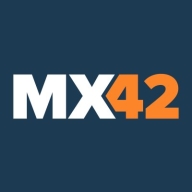


Matrix42 Unified Endpoint Management and Google Cloud Identity offer comprehensive solutions for endpoint management and identity services. Google Cloud Identity has superior features, while Matrix42 Unified Endpoint Management receives more favorable reviews for pricing and support.
Features: Users appreciate Matrix42's powerful automation tools, comprehensive endpoint management capabilities, and strong customer support. Google Cloud Identity has seamless integration with Google services, advanced security features, and efficient access management.
Room for Improvement: Users suggest Matrix42 needs a more intuitive design, improved reporting tools, and better mobile support. Google Cloud Identity could enhance its service by offering more customization options, better offline capabilities, and expanded third-party integration.
Ease of Deployment and Customer Service: Users find deploying Matrix42 straightforward, with commendable customer service. Google Cloud Identity is noted for easy deployment for existing Google ecosystem users, but its customer service could be more responsive.
Pricing and ROI: Matrix42 offers competitive pricing and a high perceived return on investment due to its extensive feature set relative to cost. Google Cloud Identity, while potentially higher-priced, is justified by its advanced integrations and security benefits. Matrix42 is seen as more cost-effective, but users acknowledge the value delivered by Google Cloud Identity.



Microsoft Intune provides centralized management of mobile devices and applications, ensuring security, compliance, and productivity through integration with Microsoft services like Microsoft 365 and Azure Active Directory.
Organizations use Intune for managing mobile devices and applications, enhancing security and compliance across platforms. With features like single sign-on, conditional access, and zero-touch deployment via Autopilot, it facilitates efficient operations. Intune's scalability, easy enrollment, and capabilities such as remote wipe support diverse device management, offering robust data protection and efficient operation. Despite its features, improvement areas include reporting, compatibility with non-Microsoft devices, and better support for macOS and Linux devices.
What are the key features of Microsoft Intune?
What benefits should users look for in reviews?
In industries such as finance, healthcare, and education, Microsoft Intune is implemented to ensure secure and compliant device management. Companies leverage its capabilities to deploy security policies and manage both corporate-owned and BYOD environments, facilitating a unified approach to data protection and compliance.
Cloud Identity is an Identity as a Service (IDaaS) and enterprise mobility management (EMM) product. It offers the identity services and endpoint administration that are available in G Suite as a stand-alone product. As an administrator, you can use Cloud Identity to manage your users, apps, and devices from a central location - the Google Admin console.
Silverback offers easy, scalable and secure device management for tablets and smartphones, including Android for Work, Windows 10 Mobile, iOS, and Mac OS.
We monitor all Enterprise Mobility Management (EMM) reviews to prevent fraudulent reviews and keep review quality high. We do not post reviews by company employees or direct competitors. We validate each review for authenticity via cross-reference with LinkedIn, and personal follow-up with the reviewer when necessary.